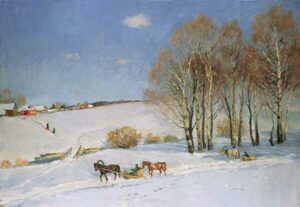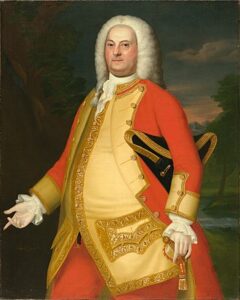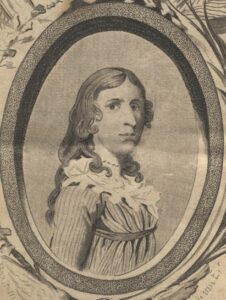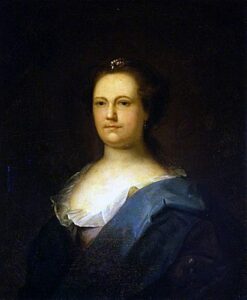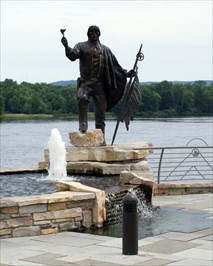Americanism Redux
It’s Today, February 2, 250 years ago—In 1773
Good lord, the air is cold. You inhale and your lungs feel like they’re frozen together. Exhale and a whitish air rises and disappears. Again and again. Inner pangs of cold, outer clouds of frost.
Up you go.
(winter transportation)
You’re on the plank board that serves as a seat. Bundled with densely woven clothes, a heavy coat, and now a rough blanket. Ready. Above ground a few feet.
Speaking of feet, you double-check to see that you can still feel yours.
The driver snaps the leather reins on the back of the thickly-haired horse. He snorts and, like you, blows out the air of a winter more cold than anyone around New England can remember. The sleigh creaks and groans as the horse pulls the people and the wooden carriage and the iron runners over packed snow. Down the lane, onto the road, headed to town. Weighted by snow, the pine trees bow low. Whipped by fierce winds, the pine trees wave excitedly. So strong is the wind that even the naked branches of the hardwood trees join in the motion. Everything is white and silver and green and brown, the colors vivid through the tears in your eyes, a sign of the cold.
250 years ago today, God Almighty, it’s frigid.
*******************************************************************
John Adams is at his home in Braintree, colony of Massachusetts, stoking the fire to keep his family warm. He knows he’s stoking something else, too.
It’s a day after a newspaper has published John Adams’s scathing reply to a challenge. The challenger, General William Brattle, had called him out personally. Brattle has been writing and speaking that Adams and others have fooled everyone into becoming upset about the British imperial government seeking to pay the salaries of the colony’s local judges. No big deal, says Brattle, and by the way, Adams has it all wrong anyway, he adds. Adams blasts back with his essay yesterday, ripping Brattle for not knowing the facts, not knowing the nuances of law and customs, not knowing much of anything.
Adams made his point as starkly as he stuck the poker into the fire: “my difficulty lies here, no custom, no immemorial usage, no act of parliament enabled the King, to grant patents (of salaries) to the judges…”
(William Brattle, challenger of Adams)
Thirty-two miles south of the glowing face of John Adams is a shivering twelve-year old girl named Deborah Samson. She’s in the loft of a small house. The house and seventy-five acre farm are owned by the Thomas family, who also, practically speaking, own her as well. Deborah has been “put-out” by her mother who has no money, no husband, no hope. Deborah has been leased and bound as a servant, a labor commodity; the Thomases are her third owning family in five years. Deborah is physically strong and earns her keep in the fields, working with men behind plows, making hay, tending crops and livestock. By herself, up in the loft, Deborah loves to read, consuming everything on the printed page. She also likes to be out at night, gazing at the stars, the moon, the comets, anything above her in the black heavens. And she knows maps and the relations of things marked on them. Today, 250 years ago, she seeks whatever warmth can be had in the drafty clapboard house. If she can stand it, a cold night is perfect for stargazing, for listening to the twinkling stories for her life. (She doesn’t know it yet, but one day as a teenager she’ll disguise herself as a man and join an army led by a general named Washington.)
(Deborah Samson as an adult)
Another Deborah in cold temperatures is in Philadelphia today, 250 years ago. She’s been waiting and waiting and waiting for postal delivery, a letter from her absent husband. Not today, though. There’s a hole in her heart. True, she and her husband have a type of love, an arrangement perhaps. They have lost one child to death, have a daughter who is thriving, and, again in another sort of arrangment, an older son who the husband conceived with another woman he didn’t marry. It’s a touchy subject, to be sure, and it does nothing to treat the pain kept inside. On the other side of the Atlantic Ocean, today, 250 years ago, Benjamin Franklin in London, England, sits down to write to his wife Deborah. In the letter she’ll receive a mild scolding for not writing her distant husband more.
(Deborah Read Franklin)
Believe it or not, it can get even colder.
West of a great lake called Kitchi-gami, later called Superior, the winter is endless, but people there get by. They’re used to it. It’s life.
One of them is named Wapasha. He’s a leader of the Mdewakanton Dakota tribe in a place the future will call Minnesota, the Dakota word for “cloudy water,” near a future town dubbed Winona, the Dakota word for “first daughter.” Wapasha is fifty-one years old, respected, well-traveled, and highly attuned to a world around him in the midst of upheaval and revolution. Change is everywhere and on the move, different from the seasons and moons and natural patterns that mark his life. Wapasha thinks about his options—who can he trust, who he can distrust, who he can influence and perhaps have faith in. The people and groups tend to flow back and forth across the categories. War rages to his west where an independent empire seems to be forming in the grasslands. Economic pressures push upward from the south, traveling the rivers. New dynamics continue to unfold in the east, beyond the freshwater seas, as other empires have clashed and collided in colored-coats. In the warm lodge of his family, he looks at his wife with loving eyes, hoping the baby inside her will be born healthy and strong. (Wapasha doesn’t know it but the pregnancy will mean his name takes a number to become Wapasha I, while the baby will mature into Wapasha II, the next new leader of the tribe.)
Outside the lodge, massive drifts of white build from the cutting wind. In the higher realms of life that keep the storehouse of the snow, now is the time to wait.
(statue of Wapasha II in Minnesota)
Also
They are busy. In London in offices, parlors, and social gatherings for the wealthy and well-connected, they negotiate, deal, and swap non-stop. Who are they? Members of Parliament, representatives of the sprawling East India Company, advisors to the King, hangers-on to the King, favor-doers to the King, and others besides. Wine in glasses, pipes in hand, snuff in mouth, they sip and puff and spit while working on exactly how the East India Company’s proposed law will help rescue the drowning entity. Governmental budgets are tight, the governmental needs are many, including a demand for better retirement pay for the military. Regardless, ten million pounds of tea sit in boxes and the boxes sit in crates. Waiting to be shipped and sold somewhere. Tea likely going west, following the path of Franklin’s letter to his wife.
For You Now
A current tax on a popular item. Will it be repealed? Will it be revised? And on what basis for the future?
Local judges and who pays their salaries. From our accounts? From theirs? And on what basis for the future?
It’s the what-basis question that means the most. Last asked but furthest reaching. The speculative answer and the final answer automatically plug into the past and establish…patterns, shifts, reversals, trends, precedents, and more. From them come arguments, theories, strategies, conspiracies, and more. And within these are webs of emotions across branches of fact.
Adams and Brattle: division over control.
Deborah and Deborah: connection in separation.
Wapasha I and Wapasha II: location among duress.
A winter’s day.
Suggestion
Reflect on our immediate moment in 2023 and choose the issue and event that produces your deepest “what-basis” concern.
(a time to reflect)
